Refine search
Actions for selected content:
23990 results in Ancient history
Chapter 4 - Cities where Men Sacrifice
-
- Book:
- The Politics of Sacrifice in Early Greek Myth and Poetry
- Published online:
- 13 April 2017
- Print publication:
- 30 March 2017, pp 119-155
-
- Chapter
- Export citation
Bibliography
-
- Book:
- The Politics of Sacrifice in Early Greek Myth and Poetry
- Published online:
- 13 April 2017
- Print publication:
- 30 March 2017, pp 173-192
-
- Chapter
- Export citation
Chapter 2 - Sacrifice, Succession and the Politics of Patriarchy
-
- Book:
- The Politics of Sacrifice in Early Greek Myth and Poetry
- Published online:
- 13 April 2017
- Print publication:
- 30 March 2017, pp 55-89
-
- Chapter
- Export citation
Introduction
-
- Book:
- The Politics of Sacrifice in Early Greek Myth and Poetry
- Published online:
- 13 April 2017
- Print publication:
- 30 March 2017, pp 1-26
-
- Chapter
- Export citation
Copyright page
-
- Book:
- The Politics of Sacrifice in Early Greek Myth and Poetry
- Published online:
- 13 April 2017
- Print publication:
- 30 March 2017, pp iv-iv
-
- Chapter
- Export citation
Illustrations
-
- Book:
- The Politics of Sacrifice in Early Greek Myth and Poetry
- Published online:
- 13 April 2017
- Print publication:
- 30 March 2017, pp vii-vii
-
- Chapter
- Export citation
Subject Index
-
- Book:
- The Politics of Sacrifice in Early Greek Myth and Poetry
- Published online:
- 13 April 2017
- Print publication:
- 30 March 2017, pp 197-198
-
- Chapter
- Export citation
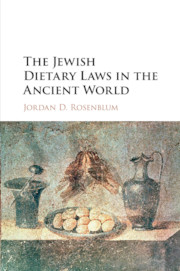
The Jewish Dietary Laws in the Ancient World
-
- Published online:
- 28 March 2017
- Print publication:
- 15 December 2016
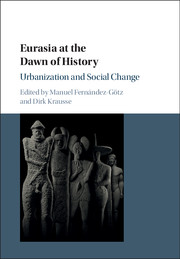
Eurasia at the Dawn of History
- Urbanization and Social Change
-
- Published online:
- 28 March 2017
- Print publication:
- 16 January 2017
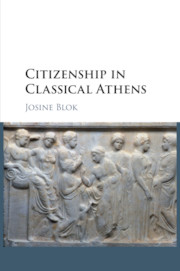
Citizenship in Classical Athens
-
- Published online:
- 24 March 2017
- Print publication:
- 10 March 2017
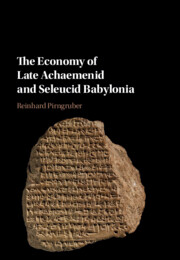
The Economy of Late Achaemenid and Seleucid Babylonia
-
- Published online:
- 23 March 2017
- Print publication:
- 06 March 2017
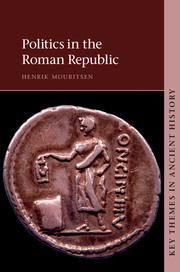
Politics in the Roman Republic
-
- Published online:
- 16 March 2017
- Print publication:
- 02 March 2017
General Index
-
- Book:
- Citizenship in Classical Athens
- Published online:
- 24 March 2017
- Print publication:
- 10 March 2017, pp 321-328
-
- Chapter
- Export citation
Tables
-
- Book:
- Citizenship in Classical Athens
- Published online:
- 24 March 2017
- Print publication:
- 10 March 2017, pp vii-viii
-
- Chapter
- Export citation
Preface
-
- Book:
- Citizenship in Classical Athens
- Published online:
- 24 March 2017
- Print publication:
- 10 March 2017, pp ix-xii
-
- Chapter
- Export citation
Abbreviations
-
- Book:
- Citizenship in Classical Athens
- Published online:
- 24 March 2017
- Print publication:
- 10 March 2017, pp xvii-xx
-
- Chapter
- Export citation
Contents
-
- Book:
- Citizenship in Classical Athens
- Published online:
- 24 March 2017
- Print publication:
- 10 March 2017, pp v-vi
-
- Chapter
- Export citation
1 - Rethinking Athenian Citizenship
-
- Book:
- Citizenship in Classical Athens
- Published online:
- 24 March 2017
- Print publication:
- 10 March 2017, pp 1-46
-
- Chapter
- Export citation
Copyright page
-
- Book:
- Citizenship in Classical Athens
- Published online:
- 24 March 2017
- Print publication:
- 10 March 2017, pp iv-iv
-
- Chapter
- Export citation
Bibliography
-
- Book:
- Citizenship in Classical Athens
- Published online:
- 24 March 2017
- Print publication:
- 10 March 2017, pp 280-305
-
- Chapter
- Export citation
